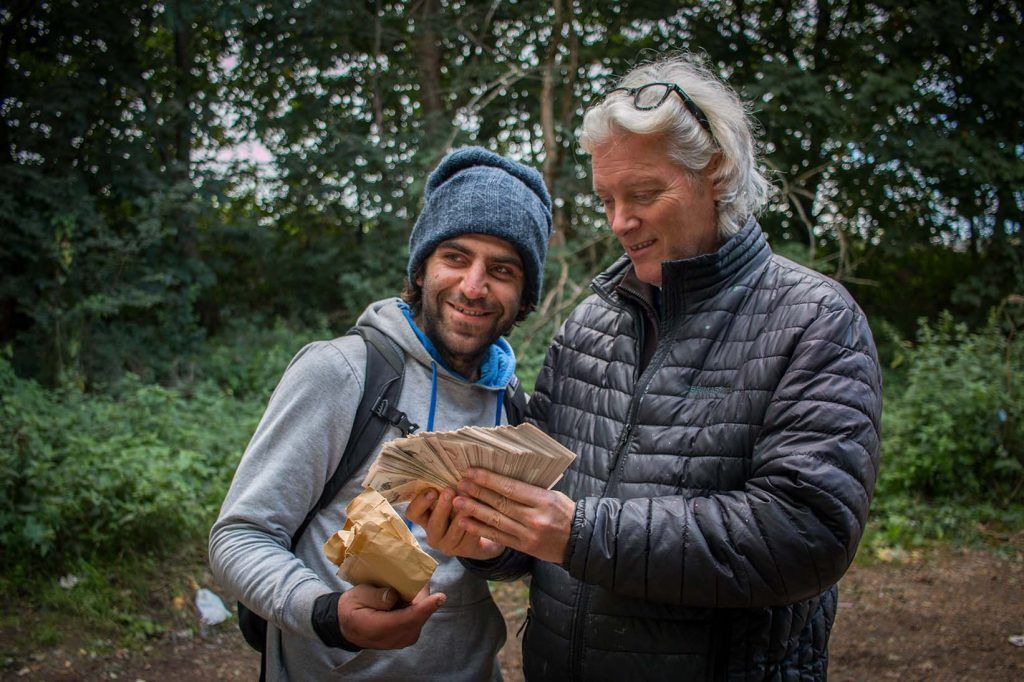Kristian von Hornsleth would appear to be making progress with his controversial conceptual art project, ‘The Hornsleth Homeless Tracker’ (HHT), which sells homeless people in London as if they were a real-life Pokémon Go or, as the artist describes them, a ‘Tramp-agotchi’.
So far the Danish artist has sold two of his exclusive gold accounts, which grants the buyer exclusive access to a homeless person’s movements via a tracking device, along with a gold-plated portrait of the subject. The homeless person in each case received half the proceeds.
As the news clips contained in the video below suggest, the controversial project is drumming up plenty of publicity.
READ MORE: Contentious artist in hot water over homeless project
Cheaper options
The buyers paid 210,000 and 238,000 kroner for Brian and Darren respectively, with another eight gold accounts still up for sale. For reasons not clear, Brian and Darren were the cheapest on the market, as the prices for the other eight range from 320,000-384,000 kroner.
With affordability in mind perhaps, the HHT website has just confirmed the availability of 100 silver accounts, although there are few details regarding price and package, or of a date for an exhibition related to the project.
Art reveals society
Von Hornsleth, a major critic of contemporary culture, describes the project as “an ethical boundary smashing work, which fuses homelessness, privacy invasion, inequality and reality TV, with present day cultural decadence and interactive conceptual art”.
In 2006, he courted controversy with a similar initiative in which he also paid impoverished people – this time 100 Ugandan villagers to legally change their names to ‘Hornsleth’ in exchange for livestock animals.
“The art reveals the society; the public may show great compassion, or merely prove, we only want to watch not interact. Or maybe, it shows that some people just need a Tramp-agotchi,” contended the artist.















